Efficient Heartbeat Analysis Using Neuro-Fuzzy Network and Wavelet Feature Extraction
Problem Definition
The existing literature on artificial neural networks highlights several limitations and challenges that researchers face in achieving improved detection rates. Conventional artificial neural networks have shown effectiveness compared to other approaches, but still have areas where improvements are necessary. One major drawback is the requirement for a large training dataset for neural networks to be utilized effectively. Additionally, the black box nature of neural network architectures poses challenges as their final state cannot be easily interpreted in terms of rules. The learning process itself can be time-consuming and may not guarantee success.
Moreover, traditional classification models face issues related to extracting features from ECG signals, as the conventional techniques for feature extraction may struggle to accurately predict the patient's current state, potentially leading to severe consequences such as death. The proposed model in this paper aims to address these issues by improving the feature extraction process and resolving challenges associated with conventional neural networks.
Objective
The objective of this study is to improve the detection rates of ECG heartbeat abnormalities by addressing the limitations of conventional artificial neural networks. The proposed model aims to enhance feature extraction processes and overcome challenges associated with traditional neural networks through the use of neuro-fuzzy networks. By combining the strengths of neural networks and fuzzy logic, the model plans to achieve high accuracy in identifying ECG abnormalities while ensuring interpretability of the results. Additionally, the model introduces improvements in feature extraction by utilizing DWT-based techniques to extract key features from wavelet-transformed signals. Overall, the objective is to provide a more effective and accurate method for detecting ECG abnormalities compared to traditional approaches.
Proposed Work
In order to overcome the issues identified in traditional approaches to detecting ECG heartbeat abnormalities, this paper proposes a model based on a neuro-fuzzy network. The reasoning behind choosing neuro-fuzzy over a conventional neural network lies in the ability of neuro-fuzzy systems to intelligently combine the strengths of neural networks and fuzzy logic, allowing for more accurate detection of abnormalities. By incorporating the parallel processing, robustness, and data-rich learning capabilities of neural networks with the ability of fuzzy logic to model imprecise and qualitative knowledge and handle uncertainty, the proposed model aims to achieve high accuracy in identifying ECG abnormalities. The use of neuro-fuzzy networks also enables the representation of knowledge in an interpretable manner while optimizing parameters through neural network learning.
Additionally, the proposed model introduces improvements in the feature extraction phase by utilizing discrete Wavelet Transform (DWT) based techniques instead of traditional PQRST point localization methods.
This new approach aims to extract features such as mean, standard deviation, maximum and minimum amplitude, and variance from the wavelet transformed signals. By using these features, the model seeks to enhance the accuracy and effectiveness of detecting ECG abnormalities. Overall, the proposed work aims to address the limitations of traditional neural networks, specifically in the context of ECG heartbeat abnormality detection, by leveraging the combined strengths of neuro-fuzzy systems and advanced feature extraction techniques.
Application Area for Industry
This project can be used in various industrial sectors such as healthcare, biotechnology, and medical devices. The proposed solutions address challenges faced by industries in accurately detecting ECG heartbeat abnormalities. By utilizing a neuro-fuzzy network, this model offers a more intelligent decision-making system to detect abnormalities with high accuracy. The integration of neural and fuzzy logic allows for the representation of imprecise knowledge in an interpretable manner while optimizing parameters through neural network learning. Additionally, the use of wavelet feature extraction techniques over traditional PQRST point localization provides more effective feature extraction, including mean, standard deviation, maximum and minimum amplitude with variance.
Implementing these solutions can lead to improved patient care, early detection of cardiac issues, and potentially saving lives in critical situations within various industrial domains.
Application Area for Academics
The proposed project focusing on utilizing a neuro-fuzzy network for detecting ECG heartbeat abnormalities has the potential to enrich academic research in the field of biomedical engineering and artificial intelligence. By addressing the limitations of conventional neural networks and offering a more intelligent decision-making system, researchers can explore new avenues for improving the accuracy of abnormality detection in ECG signals.
This project can contribute to education by providing students with a hands-on experience in applying advanced technologies such as neuro-fuzzy networks and wavelet feature extraction techniques to real-world healthcare data. Through practical training on algorithms like DWT and ANFIS, students can develop a deeper understanding of how machine learning can be used to enhance medical diagnostics.
Training sessions using the code and literature of this project can benefit MTech students and PhD scholars in the field of signal processing, helping them explore innovative research methods for analyzing complex data sets.
By studying the proposed model, researchers can gain insights into the application of fuzzy logic in healthcare analytics and its potential for improving detection rates in medical diagnosis.
The use of neuro-fuzzy networks in this project opens up opportunities for future research in developing more interpretable and accurate decision-making systems for healthcare applications. As researchers continue to refine and expand upon the proposed model, they may uncover new ways to enhance the efficacy of ECG analysis and contribute to advancements in personalized medicine.
Overall, the proposed project offers a valuable platform for academic research, education, and training in the field of biomedical engineering, providing a framework for innovative research methods, simulations, and data analysis techniques within educational settings.
Algorithms Used
The proposed model in this project utilizes the Discrete Wavelet Transform (DWT) algorithm and the Adaptive Neuro-Fuzzy Inference System (ANFIS) algorithm. The DWT algorithm is used for feature extraction from the ECG signals to capture important information in a more effective manner compared to traditional methods. By extracting features such as mean, standard deviation, maximum and minimum amplitude, as well as variance from the wavelet transformed signal, the model aims to enhance accuracy in detecting heartbeat abnormalities.
On the other hand, the ANFIS algorithm is utilized for decision-making based on the extracted features. The neuro-fuzzy network combines the strengths of neural networks and fuzzy logic to create a more intelligent system for detecting abnormalities accurately.
The integration of these algorithms is crucial for improving the efficiency and accuracy of the ECG heartbeat abnormality detection system proposed in this project.
Keywords
artificial neural network, improved detection rate, conventional artificial neural network, traditional approaches, drawbacks, neural networks, huge training dataset, black boxes, learning process, classical classification models, ECG signals, feature extraction, PQRST points, patient state prediction, neuro-fuzzy network, ECG heartbeat abnormalities, fuzzy logic, decision-making systems, artificial neural networks, parallelism, robustness, learning, fuzzy systems, interpretability, parameter optimization, wavelet feature extraction, mean, standard deviation, maximum amplitude, minimum amplitude, variance, ECG Heartbeat Abnormality Detection, Discrete Wavelet Transform (DWT), ECG Signal Processing, Wavelet Filter, Noise Reduction, Adaptive Neuro-Fuzzy Inference System (ANFIS), Medical Diagnosis, Heart Health Monitoring, Signal Analysis, Biomedical Signal Processing, Signal Filtering, ECG Abnormalities, Heart Rate Variability, ECG Data Analysis, Cardiac Health, Medical Signal Processing, ECG Signal Classification, Abnormal Heart Rhythms, ECG Abnormality Identification, Heartbeat Analysis, Medical Data Analysis, Medical Monitoring
SEO Tags
artificial neural network, ANN, neural network architecture, feature extraction, ECG signals, PQRST points, neuro-fuzzy network, ECG heartbeat abnormalities, fuzzy logic, decision-making systems, artificial neural networks, wavelet feature extraction, mean, standard deviation, maximum amplitude, minimum amplitude, variance, ECG Heartbeat Abnormality Detection, Discrete Wavelet Transform, ECG Signal Processing, Wavelet Filter, Noise Reduction, Adaptive Neuro-Fuzzy Inference System, Medical Diagnosis, Heart Health Monitoring, Signal Analysis, Biomedical Signal Processing, Signal Filtering, ECG Abnormalities, Heart Rate Variability, ECG Data Analysis, Cardiac Health, Medical Signal Processing, ECG Signal Classification, Abnormal Heart Rhythms, ECG Abnormality Identification, Heartbeat Analysis, Medical Data Analysis, Medical Monitoring.
| Shipping Cost |
|
No reviews found!














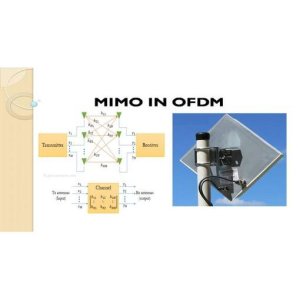
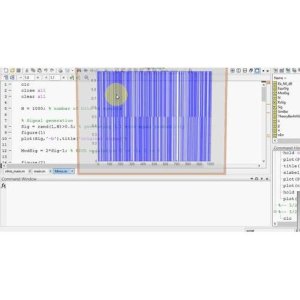
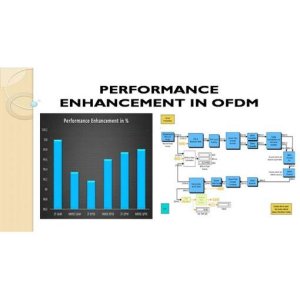
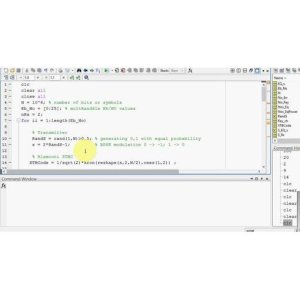
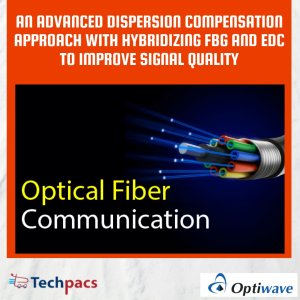
































No comments found for this product. Be the first to comment!